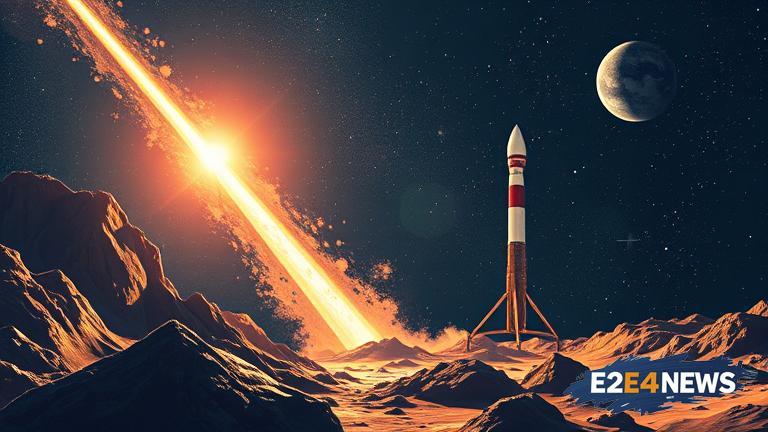Japan’s space agency, JAXA, has announced plans to send an unmanned spacecraft to the moon in the near future, with the goal of establishing a sustainable human presence on the lunar surface by the 2020s. This mission is part of Japan’s broader strategy to become a major player in the global space industry, with a focus on developing cutting-edge technologies and fostering international cooperation. The Japanese government has allocated significant funding for space exploration, with a budget of over $1 billion for the next fiscal year. This investment is expected to create new opportunities for Japanese companies and researchers, as well as drive innovation and economic growth. Japan’s space program has already achieved several notable successes, including the launch of the Hayabusa2 spacecraft, which returned samples from the asteroid Ryugu in 2020. The country is also working closely with international partners, such as NASA and the European Space Agency, to advance its space exploration goals. One of the key challenges facing Japan’s space program is the development of a reliable and efficient launch system, which is essential for sending spacecraft and astronauts into space. To address this challenge, JAXA is working on the development of a new launch vehicle, called the H3, which is expected to be more powerful and cost-effective than existing launch systems. Japan is also investing in the development of new technologies, such as advanced propulsion systems and life support systems, which will be critical for long-duration space missions. In addition to its technical challenges, Japan’s space program also faces significant bureaucratic and regulatory hurdles, which can slow down the development and implementation of new projects. Despite these challenges, Japan remains committed to its space exploration goals, with a focus on establishing a sustainable human presence in space and contributing to the advancement of scientific knowledge. The country’s space program is also expected to have significant economic and social benefits, including the creation of new jobs and industries, as well as inspiring future generations of scientists and engineers. Japan’s space agency is also working to promote international cooperation and collaboration, recognizing that space exploration is a global endeavor that requires the participation and contribution of many countries. The Japanese government has also established a new space policy, which outlines the country’s goals and objectives for space exploration and development. This policy emphasizes the importance of international cooperation, as well as the need for Japan to develop its own unique strengths and capabilities in space technology. Japan’s space program is also expected to have significant implications for the country’s national security, as space-based technologies and systems become increasingly important for military and defense applications. The country’s space agency is working closely with the Japanese military to develop new space-based systems and technologies, such as satellite-based surveillance and communication systems. Overall, Japan’s new era of space exploration is marked by ambitious plans, significant challenges, and a strong commitment to international cooperation and collaboration. With its rich history of innovation and technological advancement, Japan is well-positioned to become a major player in the global space industry, and to make significant contributions to the advancement of scientific knowledge and human understanding. The country’s space program is also expected to have significant economic and social benefits, including the creation of new jobs and industries, as well as inspiring future generations of scientists and engineers. As Japan continues to push the boundaries of space exploration, it is likely to face many challenges and obstacles, but the country’s determination and commitment to its goals will ultimately drive its success. Japan’s space agency is also working to promote public awareness and understanding of space exploration, recognizing that a strong and informed public is essential for supporting and sustaining a vibrant and successful space program. The agency is using a variety of outreach and education programs to promote interest and engagement in space exploration, including social media campaigns, public events, and educational programs for schools and universities. By promoting public awareness and understanding of space exploration, Japan’s space agency is helping to build a strong foundation for the country’s space program, and to inspire future generations of scientists and engineers to pursue careers in space exploration and development.





